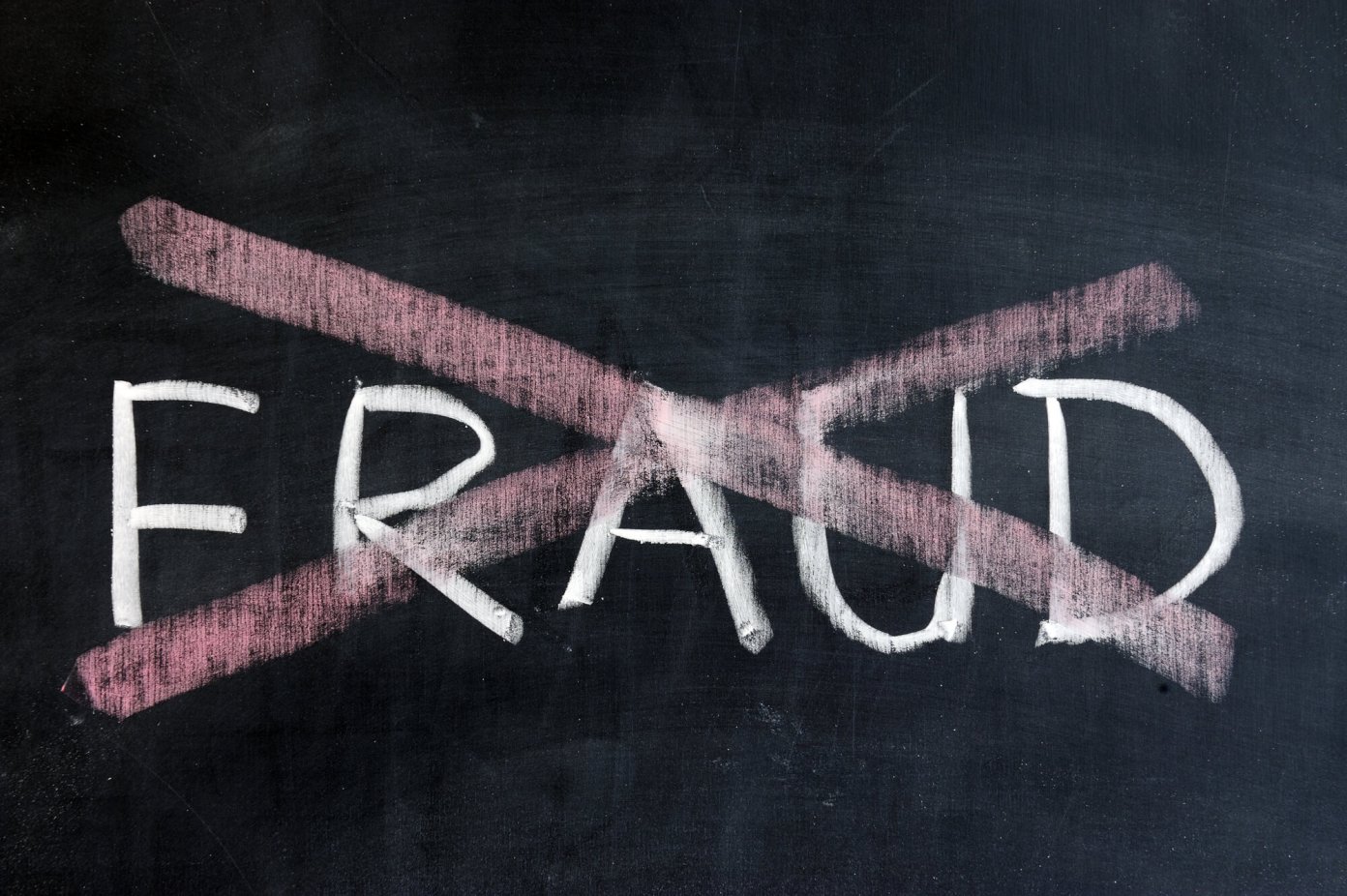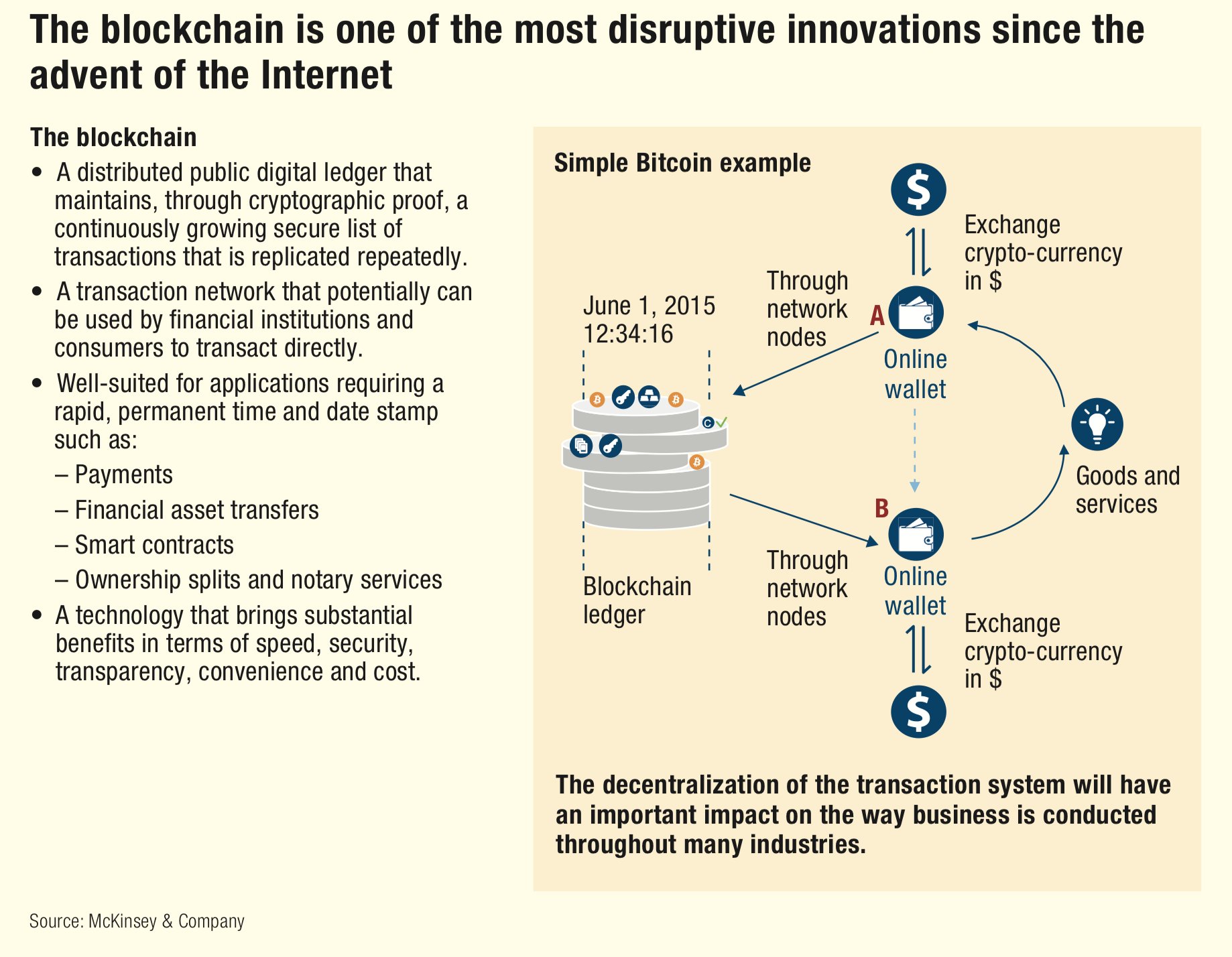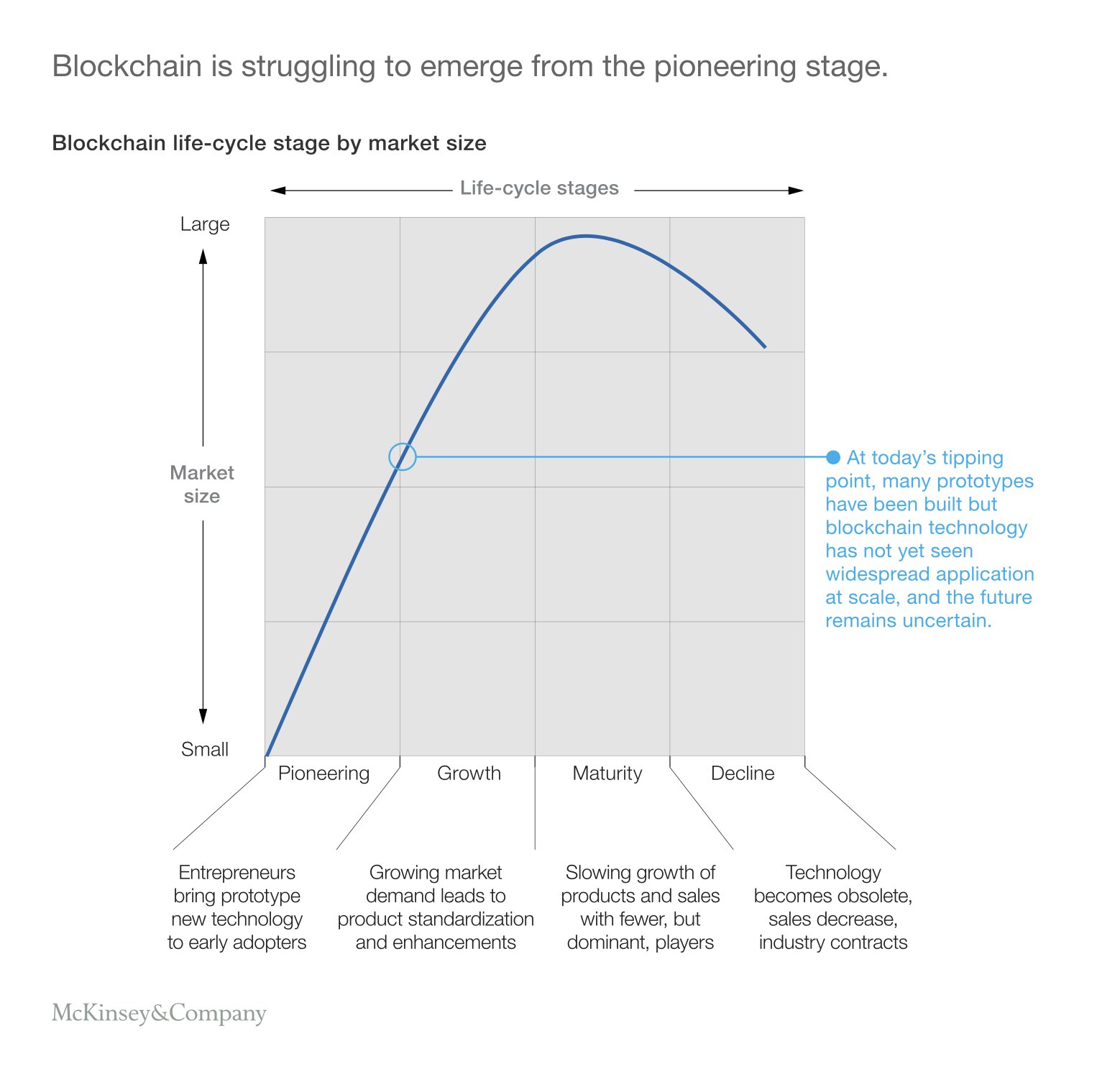My article in FORBES dated December 21st, 2018.
Blockchain can definitely affect social organizations. Can the new technology be used successfully in public administration as well? Will it help governments inspire trust in citizens and make the latter feel they are better represented in public institutions?
If blockchain becomes universal, we will be able to declare our taxes more conveniently, buy houses faster and more securely, exercise better control over the decisions of public administrations and store and make available our data in public registers. Public administrations and even state governments will gain a tool to better manage not only the economy, but also public interest. In keeping with its obligation to use funds efficiently, the public sector could generate huge savings as, by definition, blockchain cuts out costly intermediaries from the transaction process. Hence, benefits could be gained by both the average citizen and society at large. What is crucial in the context of public administration is that blockchain can be highly trustworthy. Any two parties who have never seen, known or even trusted each other can conclude a contract confident that no fraud is possible.
We are victims of documents
What are the expectations of the citizens who approach a public servant? The answer is simple. They want clear legislation, a service delivered in a friendly and competent way, efficient procedures, the confidence that their personal data will not be abused, and low transaction costs.
Is all this delivered to regular citizens? Unfortunately, the question is purely rhetorical. The reality is very different and fraught with complex document flows, repeated prompts for the submission of personal data in completing even the simplest formalities, and constant changes to legislation. The public servants across the desk devote most of their time to handling documents. What is worse, the documents come in different formats that are difficult to harmonize and require extensive safeguards and administrative procedures. Public servants are forced to grapple with constantly changing legislation and its interpretations. This makes for a very complicated environment that erodes trust between the parties involved. And yet, things could be very different.
Can the chaotic system be changed?
Managing dates of birth and death, civil status information, business registers, tax liability and insurance details takes massive information silos. More importantly, information flow rules must be codified, which is not an easy task in a constantly changing environment. To complicate things even further, individual public administration sectors use their own standards, often incompatible with those applied by other organizations. Even the most innovation-friendly governments find it daunting to manage data flows, process and validate data, and ensure IT security and safe disclosures to multiple parties. Could a universal system simplify data flows between citizens and public administration, offering convenience and a sense of security to both sides? Yes, it could. All that is needed is the political will and a green light from decision-makers. Every institution that handles invoices, documents, access codes and authorization tools should naturally be interested in the opportunities offered by blockchain.
The biggest benefit of blockchain is transparency
What makes public administration unique is its geographical distribution, the huge responsibility it shoulders, its mission and its inherent need for transparency. In one of my previous articles, I have already emphasized that blockchain’s transparency makes it perfectly suited for use in areas where transparency is critical. This is precisely why the technology might be of great interest to public institutions and offices. Not to mention us, the citizens.
Blockchain can also help respect one of the citizen rights enshrined in our political system, namely the right of access to public information. Besides benefitting governmental agencies and people in charge of issuing licenses and administrative authorizations, blockchain could help regular citizens.
Its very practical application could be to simplify relations between citizens and public administration bodies, protect critical public data and facilitate asset management. Deployed on a mass scale, it would provide every person and organization with access to virtually all the data that concerns them. The most obvious case is that of linking basic personal data with records of previous interactions with organizations and offices, with the respective data stored in an encrypted database. End users could authorize offices to access specified parts of such individual ledgers. Such access could be enabled with cryptographic rules set up in blockchain that would govern the use of public and private keys.
A clear security system
Security is paramount for both financial operations and the work of governmental authorities. Any technological solution used for these purposes must guarantee security. However, even the most sophisticated encryption systems can never ensure absolute security. With that in mind, we must remember that blockchain is among the technologies that can efficiently eliminate the threats that result from data tampering. This public ledger technology stores transaction data on multiple computers in a network in chronological order. In a nutshell, each transaction is recorded in the chain of what is known as blocks based on the information encrypted during previous transactions (to learn more about how blockchain works, see my previous articles). Anyone seeking to modify a transaction would have to modify all previous records throughout the blockchain. This would require the consent of other network users (blockchain is consensus-based), enormous computational power (comparable to that of the entire Internet) and specialized quantum computer algorithms (luckily, this technology is still in its infancy).
The reason for this is that there is no central agent to decide on the legality of system changes. Instead, all computers in a chain follow a protocol, setting the stage for automated consensus. Through this mechanism and its encryption system, the blockchain upholds the highest security standards. Having said that, lawyers and legislators must consider several key questions regarding the practical use of blockchain. To what extent are smart contracts legally binding? Will blockchain data be admissible in court? Do blockchain encryption methods require extraordinary standards if the technology is to become a universal ledger?

Estonia and Sweden already using blockchain
Even though the lawmakers tend to lag behind new technologies, those who trust the technologies can overcome all odds. Such was the case of Estonians who resolved to adopt blockchain in their public sector and who have been testing blockchain solutions for many years. The Estonian government is currently using the Keyless Signature Infrastructure (KSI) to secure nearly all public data. This enables public servants to monitor dataset modifications. They can see who changed a record as well as how and when it was changed. Among other applications, KSI is used by the Estonian health care system to run electronic IDs. The Estonian “e-residence” system helps authenticate commercial contracts, register companies, and compile eligible voter lists.
The decision to use blockchain has been made also by the government of Sweden, a country where real estate transactions involve huge amounts of money (their total volume in Sweden exceeds the country’s GDP). Real estate trading in Sweden is intense and essential for the country’s economy. Nevertheless, documenting property rights transfers has always been painful for the citizens as it entailed exchanging many traditional documents. The Swedish government is now seeking to digitalize the process. It is testing a mobile application that would make transactions easier for all the concerned parties, whether it is sellers, buyers or banks. Blockchain would help register changes in real property status. This would render obsolete the paper documentation which runs into hundreds of pages. Importantly, sales closures, which often take weeks to complete, could be done in a matter of hours. This is possible thanks to the blockchain-based smart contract mechanism. Every real estate buyer could use an algorithm that defines conditions necessary for completing a transaction. If all these conditions are met, and the algorithm confirms it, property rights can be automatically transferred to the new user. This would fully eliminate the need for intermediaries, who now generate or monitor complicated legal provisions.
Solutions similar to the Swedish ones are currently tested in Georgia. Through its National Public Registry Agency, the Georgian government is seeking ways to use the blockchain to register real property and land ownership. The U.S., in its turn, has seen strong lobbying for the adoption of blockchain in public administration. The potential of this technology is being tested by the General Services Administration, the Health and Human Services Department, and the Department of Homeland Security. In the Netherlands, plans are made to use distributed ledgers in tax offices. No declarations have gone as far as those of the Dubai government which has committed to using the blockchain to run all public services by 2020.
Read more in full article.
Link to the article (in Polish).
Related articles:
– Why do we care about blockchain technology?
– Blockchain – the ultimate financial crash
– Blockchain – the Holy Grail of the financial system?
– What is blockchain? All you need to know
– What are the bitcoins? All you need to know
– Blockchain has a potential to upend the key pillars of our society










Tom Jonezz
What I don’t quite understand regarding blockchains are the often mentioned trustless and permissionless nature.
The reason is no matter what kind of technology you put in a black box, it’s the people operating, using, and trusting that black box what matters.
Even if there were no people involved in developing, auditing, distributing, installing, operating a system, you still need to trust it, you still need to have the permissions to use it, these are not inherent properties of the physical world.
The math is nice though.
SimonMcD
Good read
Although forgery of documents is a concern/problem and DLT, along with blockchain (1st Gen DLT), can provide an immutable and secure platform to store PII data, oracles (entry points of data onto a distributed ledger) can be compromised.
If PII is controlled solely by a corrupt gov’t and does not allow for varification by the person to which the PII belongs, then this leads to potential forgery by the corrupt gov’t for nefarious purposes of the corrupt gov’t. China, Iran, NoKo, Venezuela, and many other countries come to mind that could/would manipulate a global or country-wide identity distributed ledger ID system for their own gain and control (i.e., labeling someone a terrorist who simply doesn’t agree with the views of a country). “Power corrupts, but absolute power corrupts absolutely.” (Lord Acton)
Acula
In the expanding world of the Internet of Things, entrepreneurs would be better off to remember two old adages: Resistance is futile, and if you can’t beat them join them. No matter its predicted benefit, the notion of change is hard to accept because people are settled into comfort zones and face resistance based on the status quo. Profiting from your information might be the best selling strat.
TomK
Nice read
TomK
Blockchain is a specialized trick for coinz and really doesn’t have any outside applications other that something in the trading industry for that purpose.
As soon as you start trying to “look outside the box” with coinz, you realize blockchain size will always be your ball’n chain and the only way to mitigate, is to put a head on to the chicken.
Now you have zero need for the blockchain.
Zoeba Jones
Hav smart contracts worked? No. People arguing over the meaning of words in court is not a bug. It is not a flaw. It’s the whole point.
Does deflationary currency work? Absolutely not. It simply encourages money hoarding.
Trust isn’t the problem, not that blockchain solves that problem either.
So what’s the point? What are we getting for the energy we’re spending on mining shitcins (and they’re all shitcoins, because none of them know how currency works)?
CaffD
I believe the worst is not even the drone’s nature of “follow any orders however evil”, but how easy it will be to start a war. Nowadays (almost) every government faces a strong opposition from the public opinion whenever it’s about to send someone’s daughters and sons to the battlefield. So it’s a decision that must be weighted very carefully (with a view at next elections). What about when (at least at first and/or from one’s side) there’s no human lives involved? There won’t be a moral brake!
CaffD
Director of Deloitte Consulting stated [they] “wrote more transactions than Bitcoin over the weekend by migrating our client work from Ethereum to VeChain” https://www.linkedin.com/feed/update/urn:li:activity:6528907937400778752
Tom Jonezz
Maybe if we could design a key that would open a lock if and only if the rent has been paid that would solve a lot of my problems. Some people do have need for the elimination of trust. I don’t know enough about blockchain to know whether it might be good for this or not. But i will disagree that trust is always the answer. Trust but only as far as you have to.
johnbuzz3
Interestingly I saw on a VICE news special that Goldman’s largest department now is technology. They have tons of engineers writing code to automate HFT, review data and I’m willing to bet that there’s some of them working on stablecoins/blockchain technology too. Not sure if I’ve heard any other news out of Goldman in the last year related to crypto, but I found it interesting that was very different from your personal experience.
Zoeba Jones
The book-buying example can be made transparent pretty easily.
The price of a smart contract is already shown when using one, invalidating the claims of the author that the contract could steal your money.
If buying digital goods with contracts is common in the future, there will be some standard contract for that, which your client will recognize. Thus the customer need not verify low level code.
Many contracts could even be made out of human-readable building blocks. Or there could be an english-like DSL for contracts.
For more complicated contracts, properties that are of interest to the user could be proved. Cardano’s Plutus will probably be able to support a language with theorem proving pretty easily.
But of course, most of this doesn’t exist yet. Ethereum in its current state cannot support anything of interest, except maybe notarization, simply due to high cost.
johnbuzz3
Not so sure anymore
TomCat
I don’t know if we’ll make all that much progress in 2019, but we’ll see. The IoT and smart cities in many ways go hand in hand. But what we really need is an open source solution. And AI will only really progress if we go back to studying AGI.
SimonMcD
I don’t know if we’ll make all that much progress in 2019, but we’ll see. The IoT and smart contracts in many ways go hand in hand. But what we really need is an open source solution.
AdaZombie
“trusting technology is harder than trusting people.” This is an easy thing to say if you live in a high-trust culture with a reliable legal system, as is the case of North America, Europe, and a few other countries. Outside this region, things are very different. Unreliable legal systems mean that it is very hard to formalize trust, which limits the scope of economic activity to family and friends. Where I am living, Brazil, a contract is worth less than the paper it is written on, but if you *know* someone, then, wow, it’s important! My belief is that emerging markets will be the hotbed of blockchain adoption, and it will lead to nothing short of a global economic renaissance.
https://medium.com/nama-blog/how-i-stopped-worrying-and-learned-to-love-blockchain-df1b2c59df86
What astonishes me is how few major companies are aware of this opportunity.
Tom299
Blockchain is awesome, and can’t wait to see it implementation in everyday life!
tom lee
Ironically, it’s going to be the worst thing that ever happened to the criminals (banksters) because they won’t be able to get away with sophisticated book cooking. That’s why they’ll fight it.
It’s inevitable, though. Next time we have a 2008-level collapse (or worse), people will be much more amenable to jailing them instead of bailing them out, and getting everything into a blockchain will be a high priority to prevent these things from happening again. Financial crises are **all** the result of borked ledgers at the end of the day. That’s why Bitcoin was such a revolutionary invention: no more cheating.
AndrewJo
Building and scaling quantum networks is a formidable endeavor, requiring sustained and concerted efforts in physics, computer science, and engineering to succeed. The proposed stages of development will facilitate interdisciplinary communication by summarizing what we may actually want to achieve and providing guidelines both to protocol design and software development as well as hardware implementations through experimental physics and engineering.
TomK
If you do a job search for “blockchain” you’ll find a lot of places (many very established like Amazon, Facebook, Fidelity, etc) hiring blockchain developers or more commonly software engineers that work with blockchain in some form. However, the odds of you landing your first job as a blockchain developer is unlikely to happen. I don’t think many people want a junior blockchain dev due to the immutable nature, probably makes the cost of screwing up higher.
Simon GEE
For starters, each piece of paper published daily represents a block. Each block is numbered and points to the previous one — forming a chain of blocks.
Wow. This is the first real, understandable definition of blockchain that I’ve ever seen. 💡
AdaZombie
The solution is simply to build hybrid systems – based on transparent and reliable transactions on blockchain, but also with built-in management engine is relevant to many human needs of additional Human support during accidents.
Tom Jonezz
Blockchain is not a crappy technology, it’s how it’s being used/claimed to be used for. For example, when companies say they are “using a blockchain” it doesn’t make any sense. A local blockchain can always be altered, that’s not the problem blockchain solves, its distributing the blockchain and agreeing/disagreeing whether or not new data is valid. This article once again confuses blockchain with bitcoin.
Karel Doomm2
BTW great read
John McLean
After spending a lot of time reading about blockchain it’s still the slowest type of array you can think of for me personally.
I know about the decentralized nature of the design but centralized technologies like VISA are still million times better in terms of ease of use
TomHarber
I get irritated at the blockchain movement. The amount compute needed once the chain becomes large will be crippling in cost. Just look at what has happened to bitcoin. You used to be able to use a regular cpus to mine, then gpus, now asics. It has good intentions but wrong tech.
Had a client who was doing some file storage for clients. He said in future versions of the application he would like to see blockchain implemented because it is the new technology. Tech for the sake of tech.
Norbert Biedrzycki
Blockchain explained – bitcoin example

TonyHor
I don’t see myself trusting anyone enough to audit smart contracts. A perfect contract requires perfect trust. Even if I thought the auditor has perfect intentions, nobody has perfect competence.
But I suppose if I was living under an undemocratic and oppressive regime I’d trust a smart contract audited by someone I trust more than a contract within the legal framework of that regime.
I think the core question is, who do you trust enough to make an overriding decision regarding you contract. If that answer is “the state”, blockchains have little value (in the space of contracts and currencies). If the answer is “no one”, then blockchains are a good solution.
John McLean
What I don’t really understand is why “block chain” is being focused on.
Block chain is a very low-level technology that solves a few recurring software problems very well. It’s exactly like any other design pattern, and yet you would never catch people raging that the Chain of Responsibility pattern will/won’t revolutionise all IT problems and bring about a moneyless utopia.
From what I can tell, bullshit non-technical cryptocurrency speculators began smearing this term all over the technologically illiterate media, whose myriad of incoherent claims about this innocuous software pattern left people raging at the very term “block chain” for failing to live up to the claims made about it.
tom lee
Yes, tokenization allows fractional shares. And guess what? SO DOES TRADITIONAL DATABASES. You just need to update the database architecture, which probably is going to take much less development, adoption AND maintenance cost than let’s say… blockchain tokenization! BTW, traditional relational databases are completely packed with security and transanctional features due to 5 decades of database researches. Even cryptocurrency exchanges use relational databases for internal trading processing purposes.
The only question that needs to be answered for considering employing blockchain is “does the application need a database that require concurrent read AND write by multiple trustless parties?”. For stock/security exchange storage? Usually that answer is a strong no, even for stocks. So, since you asked
CaffD
ETH contracts are not really comparable to a legal contract. It would be comparable to a contract you may sign with your bank/insurance company where you commit to pay X amount every month. If you don’t pay that X then the bank may initiate legal proceedings against you. With ETH contracts the “mainnet”(the network where ETH contracts conduct their computations) can automatically trigger other events to happen if you don’t pay your X amount. But these events are limited to what some programmer can set it up to. So far I don’t think anyone has made anything to arrest people for breaking their ETH contracts. But you never know.
The “contract” term in ETH development means a piece of code which can safely run in a Ethereum virtual machine. It doesn’t directly relate to the “contract” in law.
Jack23
It is not safe, because it is not regulated (no oversight) and bad programming can/will result in you being broke in 10, if you use cryptocurrency.
Of course there can be errors. Mainly for ther reasons above (no oversight) and entire “chains” can be “lost in space” because their backtracking was diluted and/or not properly kept.
Blockchain != Bitcoin. Bitcoin aka Cryptocurrecy is the first use of the Blockchain technology (of immutable records). This was mainly (my personal view) to get rich quick on the inventor’s side.. The Blockchain technology is a great way to keep records i.e. for who owns which real estate and to whom was it sold, but it is far from “complete” or “error free”.
Use with caution. You have been warned!
tom lee
The financial crisis of 2008 showed us the government will bail out criminals hiding behind financial and custodial legalese because the people were conditioned to trust banks.
MtGox wasn’t bailed out by the government, nor is there a need for the government to bail out any exchange. Return custody to the people and the astute will handle their own finances while the lazy fools will leave their money in exchanges that get compromised.
Norbert Biedrzycki
Blockchain is struggling to emerge from pioneering age. Still no killer app except crypto @McKinsey

Tom Jonezz
Yes, the blockchain will tell you which money moved between which cryptocurrency wallets when, and in what quantity. But how do you associate crypto-wallets with real-life people/organisations?
… Via a trusted third party, that’s how! 😀
So a corrupt government can straightforwardly fabricate a bunch of plausible-sounding expenses “pay” them, and lie about those wallets belonging to contractors/suppliers that got paid to do something, when really the money was just stolen.
Blockchain doesn’t help you here. If you want to “cook the books”, you have to do all this lying and plausible deniability anyway.
A simple analogy for this scenario is that blockchain is like if you can see everyone’s bank statements, but with all the names removed. It’s nice, but if you want to prove there’s no nastiness going on, you need to get those names, and that’s not a problem that a blockchain solves.
Adeptus99
LTO blockchain is currently working on joining an equal performance with several applications and systems that contribute to the increase in the level of transparency, reliability and strong security of confidential data in accordance with all the necessary requirements under GDPR.
Zoeba Jones
I don’t know if we’ll make all that much progress in 2019, but we’ll see. The IoT and smart cities in many ways go hand in hand. But what we really need is an open source solution.
Tom Jonezz
Blockchain is nothing but a glorified linked list. I wrote this on LinkedIn and somebody argued back about me calling it a “list”. No, “linked list” — it’s obvious they didn’t know their basic algorithms. Ok, if you can learn blockchain without knowing them, more power to you. Still though it’s not the salvation of the world like the fanbois make it out to be.
ZoraBora
On first read, the premise appears to be that blockchain doesn’t solve trust problems because so many other parts of the processes remain untrustworthy.
While true, trust isn’t solved with block chain, the premise reads as anti-progress: why make something incrementally better if it doesn’t fully solve the problem? I argue many important advances in technology are consistent incremental improvements.
The transparency gained through blockchain’s mechanism positively affects part of the problem space, I think it’s worthwhile to invest in it instead of give up on it.
John McLean
I hope that the people that believe this can remember their stance in 10 years. Not much else to say.
Karel Doomm2
While Emercoin has some great assets and concepts the Blockchain-as-a-Service (Baas) approach Microsoft is taking with Azure can only ever be used for development. Anyone truly concerned about security would never put blockchain nodes in a central cloud structure as the cloud provider services could have access to a majority of nodes making 51% attacks a real possibility, its like creating a decentralized solution and then running it on one physical computer.
DDonovan
Great read
TommyG
Let’s say I want to build the next Kickstarter. I have to set up a webserver, database server, and something to take credit card payments, make sure I comply with everybody’s terms of service, start a business and pay accountants and lawyers to make sure I won’t get in trouble with all this money I’m handling, etc. Then I have to set fees high enough, do a bunch of marketing, watch my cash flow, make sure the servers keep running, and probably hire people to help.
Or I can write a couple pages of code and post it to a blockchain that supports smart contracts. From then on I don’t have to touch it. I can market it however much I like, but it’s not as stressful because I have no outgoing cashflow. I don’t even have to charge fees. I can forget the whole thing and people can keep using it as long as they like.
And99rew
Good article, the point about complexity is key. Blockchain solutions are inherently unable to manage complexity because the functionality of trust and institutions whether corporations or governments is to manage the sheer amount of transactions coming in.
I don’t want to sign, read or be bothered with 500 smart contracts a day, and as Coase has told us 70 years ago, there is no such thing as a perfect contract anyway, because we have to incorporate informal structures and novel events we cannot anticipate in contracts. You cannot write perfect contracts because contracts concern the future, and we can only speculate about, but not know the future. And in case of dispute we need an arbiter and authority or else we’re stuck.
If everything was based on a contract there would be no corporations, there would be no government, there would be no safety regulation, because we’d all be signing bilateral contracts all day, and it would probably take up 90% of our time. Of course, that doesn’t work in large communities so we manage complexity through trusted institutions to which we defer tasks.
The selling point of blockchain technology, that it ditches hierarchies and middlemen is deeply flawed. Because hierarchies and middlemen are extremely useful entities to handle information processing.
TomK
Exponential organization models are spreading, where new organizational techniques & technologies are used to create output from owned assets 10x larger compared to peers.
tom lee
Unfortunately it’s worse than that. It opens the opportunity for home invasions.
Typically it’s hard to steal the majority of someone’s wealth. Crypto can make that easy.
I like crypto, I’ve been a fan for years. But the majority of people aren’t ready to be their own bank.
It’s too dangerous, it complicates estate planning.
I think we are going to need some form of a crypto “bank”. Hopefully built on code, so we can leave the “bankers” out of it.
Tom Jonezz
I’m not going to give this article the time of Day. Anybody who is still complaining that blockchain /crypto are worthless and still references straight to bitcoin to support their argument has obviously not submerged themselves into the field enough to really understand the benefit of either.
It’s almost as if he really doesn’t know what he’s talking about. He just comes off as and old man who hates change.
Anybody who actually pays attention to this area knows that Bitcoin sucks. No shit Bitcoin sucks. But i just had a conversation two days ago on what is going on in crypto. Bitcoin is the MySpace of crypto. We haven’t seen what the Facebook of crypto is yet; the one product that does it right. And it’s foolish to think such and application can’t exist. Bitcoin has the benefit of being first to market just like MySpace but lack a lot of features and adaptability. The moment an application comes along that fixes the issues Bitcoin had and is decoupled from its value, we will be in an entirely new era.
Accenture saves insurance companies over 12 billion dollars in A SINGLE QUARTER after developing blockchain solutions. IBM developed platforms for free that people can use to get started and develop applications. I’m gonna side with the giant companies that revolutionize industries over an old guy with ankle deep knowledge on the matter.
AndrewJo
This blockchain fad reminds me of when XML started getting reaction back in early 2000s.
Everyone wanted to use it, no one knew why. “We want a shopping cart, but can you do it in XML?!”
“Ok, like… No database orrr..?”
“Well we just want it in XML”…
Wtf? Like are you saying words because your heard them elsewhere? Do you even know what this is?
Then you’d get some bullshit that tried to replace HTML with XSL, this whole convoluted mess.. But hey, people pay some big money to implement bleeding edge technology even though it didn’t make sense.
Every article I’ve ever read about using blockchain for whatever common task has made zero sense, and seem to be written by people who enjoy over engineering some rather basic shit.
CaffD
When you send 100 bucks via paypal/Venmo to your friend in ohio, paypal isn’t literally putting a $100 bill on a plane. When you “received the money” it doesn’t mean there’s cash that got out of the plane and was just deposited into a metal box with your name on it.
When somebody “trades stocks” the stock exchange isn’t moving paper stock certificates and your bank isn’t physically moving paper bills — all they really are, are giant digital LEDGERS — moving digital numbers around from one account to the other.
So your money, stocks, even identity are just information in ledgers. Data. Does it really matter if a stock certificate is blue or green or 1 inch larger? The container of the data (colored pieces of paper, ceritificates. Or stone tablets, papyrus rolls….) doesn’t matter. It’s what’s being contained that matters (value, ownership, identity) and those are things that exist in the mind. And those things are recorded in our record books.
PiotrPawlow
Humanity is rapidly changing, doing things (business) the classical way will not go far. Businesses need to change as well along with the new habits, new needs and challenges. This is quite easy, but hard to see while going.
JohnE3
Honestly 99.999% of the smartcontracts evolve around swapping X and getting Y in such a way, since the only thing you can trade in a blockchain is the specific currency.
Currently we are just not able to “display” stuff outside of the blockchain. With some oracles you could so something like this: Send me product X, if the mailman gave me the product, i sign it. This signing triggers a smartcontract and sends the money to the shop. IF i never receive the product, i never have to pay anything.
Zidan78
Dear citizen, maybe not as much as some people claim and not in every aspects it was advertised – https://www.coindesk.com/the-false-promise-blockchains-will-revolutionize-real-world-assets
Zidan78
I have spent some time diving into blockchain and crypto topic in 2012/13 and 2016, 2017 but had no opportunity to use this knowledge commercially.
Tom Jonezz
CTL use case for city municipalities: Local businesses & Property owners can apply for all sorts of licenses & permits digitally, improving the efficiency of the local government while cutting the processing time for the users significantly. Smart contracts can also be used to implement secure voting platforms, which would prevent tampering & double voting while assuring accurate compilation of results. The City-state of Dubai is getting ready for such an implementation— digitizing of all its services including visa applications, bill payments & license renewals which account for more than 100 million documents each year. All these records will now be securely transacted using a blockchain.
Norbert Biedrzycki
johnbuzz3
I see there’s a potential use in payments and in smart contracts (although probably don’t fully understand these) but we can already do payments and contracts pretty well. Why would we want go through a huge upheaval to change it? What are the other potential uses?
TommyG
So… when you hear bitcoin what you might think of first is a ”new kind of coin”. But IMO a better way to view it is a new kind of Uber.
https://medium.com/future-of-currency/explain-bitcoin-like-im-five-73b4257ac833
ZoraBora
The problem I’ve got with smart contracts is gating the movement of currency on something that happens outside the domain of the smart contract system.
I can guarantee that I will forward to you 10% of the transfers into a specific account if and only if you first transfer five thousand e-bux into it; the conditions and outcomes take place strictly within the bounds of that one system. The same computer that evaluates the contract also determines how the money moves.
But what if I want to use smart contracts to convince you that I will pay you upon completion of a service? The smart contract system has no way of determining if you’ve actually completed that service. You might verify that the contract is in place and then scarper, since I have no way to revoke the contract.
John McLean
It’s quite easy to understand this simply by comparing number of blockchain supporters divided in three groups: technical people, non-technical people and conmans. Any truly great technology would have a lot of technical people, many non-technical people and few conmans. Blockchain however has few technical people, crazy amount of non-technical people and a lot of conmans.
Mac McFisher
No holistic touw